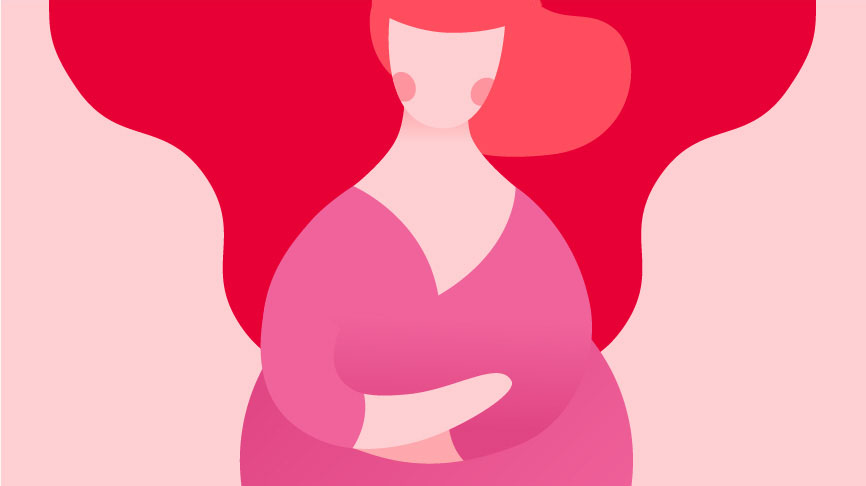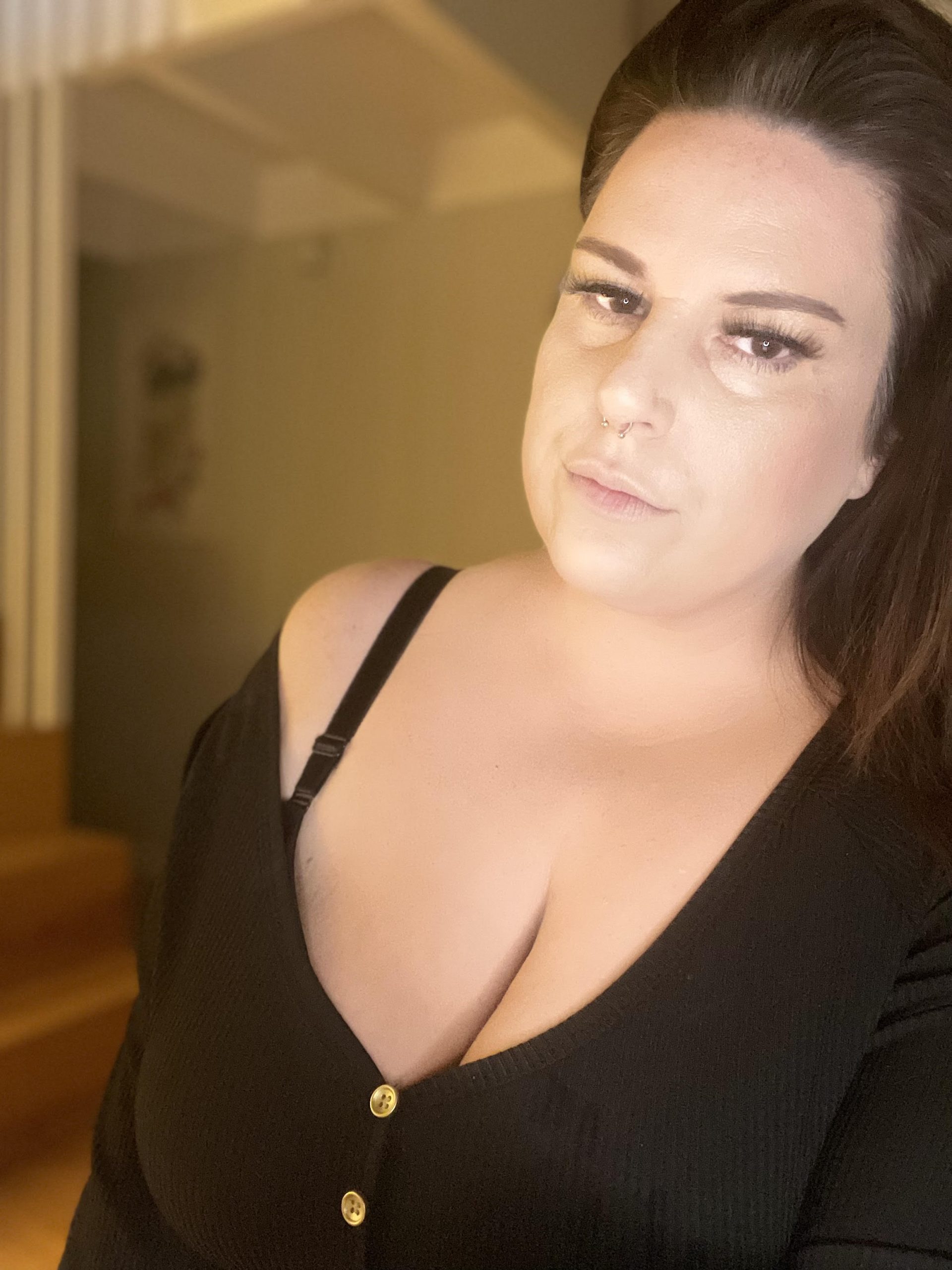At-Home Remedies to Soothe Period Bloating

It’s true, period bloating isn’t fun. And while we often curse our periods, they’re actually quite magical. They’re a sign of true femininity, and they’re showing us how beautiful our bodies are and what they’re capable of. There are some negative side effects that come with having a period, and bloating is a common complaint. Let’s take a gander through period bloating and answer some of those burning questions you may have. For many, searching for period bloating relief is their number one question, but we’ll dig even further. We’ll look at why it occurs, how long it generally lasts, ways to try and prevent period bloating, as well as a more awkward topic: bloating and gas during your period.
What is Period Bloating?
In general, bloating is when one’s belly feels full and tight. Having said that, anyone can experience bloating. But generally when one is experiencing, or about to experience, that time of the month, period bloating is a big annoyance and sometimes, a concern. Period bloating is a symptom of PMS (premenstrual syndrome), and often invites a slew of other uncomfortable side effects along with it. Physical symptoms such as stomach cramps, headaches, food cravings, swollen breasts, and backache are common, yes, but there are also mental side effects of period bloating such as having lower self-confidence, mood swings, and feeling a lower sense of wellbeing.
And actually, up to 85 percent of women experience PMS symptoms, according to the American College of Obstetricians and Gynecologists. These aren’t lovely odds, are they? So instead of simply chalking it up to one of the irritations of being of the fairer sex, why not try to make life a lot easier and more manageable? Let’s explore ways to ease symptoms of PMS, especially of period bloating, shall we?
When Does Period Bloating Occur?
Period bloating commonly occurs anywhere between one to two weeks before one’s period arrives, but it’s also possible to experience period bloating during your menstrual cycle. Why? Because of the sex hormones progesterone and estrogen. About one week before your period arrives, progesterone and estrogen levels fall, which greatly affect how your body works and how you feel. The lowering of these hormones also leads to water and salt retention, resulting in bloating. In other words, the body’s cells become swollen with water, which then manifests itself as period bloating. Fun (or not-so-fun) fact: a study found that most women experience higher levels of period bloating on the first day of their period.
How Long Does Period Bloating Last?
By now we’ve learned the culprit associated with period bloating, and we know that it often occurs one to two weeks prior to your period, and for one or two days during. But how long does period bloating last exactly? For many, bloating could last anywhere from five to 10 days. This is because everyone is unique, including how their hormone levels rise and fall. Having said that, period bloating is likely to subside considerably or go away completely once you’ve been menstruating for a few days. The even better news is that there are various things that you can try at home to help relieve period bloating.
Period Bloating Relief
While there is no one-size-fits-all when it comes to getting much deserved relief from period bloating, if you’re one of the unlucky ones who experience it, we recommend giving some of these a try.
A Change in Diet
Less Salt: Because of the change in hormones before and during your period, you’re more likely to retain salt. For that reason, try to eat a diet that’s lower in salt. High sodium foods include things such as shrimp, canned or packaged soup, ham, instant pudding, cottage cheese, salad dressing, processed meals such as fast food, pretzels, salami, and bread. Instead, you could opt for things that specifically state that they’re low in sodium.
More Potassium: There’s research that says potassium can help decrease levels of sodium and increase urine production. This means that you’re less likely to retain sodium and are more likely to reduce water retention. Try incorporating dark, leafy greens into your diet such as spinach, and/or enjoy foods like sweet potato, bananas, avocados, and tomatoes.
Diuretics: When something is a diuretic, it means that it promotes urine production. And when you urinate, there is less water retention. If you eat foods that act as a natural diuretic, like asparagus, pineapple, cucumber, peaches, and ginger, you could help prevent period bloating.
Water: You may believe the opposite to be true, but the more water you drink, the less likely you are to experience period bloating. This is because drinking water improves your kidney functioning, and aids in hydration which can make a person feel a lot better in general.
Reduce Carbs: When you consume too many carbohydrates, it can cause your blood sugar to spike which then increases the level of insulin in the body. When this happens, the kidneys tend to retain more sodium, which can directly bring on period bloating. Try to avoid white flour and processed sugars just before and during your period.
Less Coffee: While coffee does have a laxative effect, which could help with constipation, it’s true that it could contribute to bloating. This is especially true if dairy products and artificial sweeteners are added. Sweeteners such as aspartame and Splenda have the possibility to cause a chemical reaction in your intestines which can then produce bloating.
Be Mindful of How You Eat
Whatever it is you’re eating, being mindful and doing so in a specific way can aid in less period bloating. For example, try to eat more slowly while consuming smaller and more frequent meals. Also, try to chew your food well before swallowing to aid in less digestive action. Additionally, sitting up straight whilst you eat, and taking a relaxed stroll after your meal, can help reduce dreaded period bloating.
Your Exercise Regime
Then, when it comes to exercise, there are a few anti-bloating exercises that can help promote circulation and blood flow, which could remove or reduce period bloating. And even though it may seem difficult to exercise whilst on your period, it’s actually encouraged as it not only eases bloating but also reduces painful cramps and increases the happy hormone, serotonin, making you feel better overall.
You may want to try:
Cardio: 30 minutes of mild to moderate cardio, such as walking or a bike ride.
Yoga: Yoga poses such as the Cat-Cow can help with digestion and bloating, as it stretches and compresses your intestines, promoting movement. You can practice it by getting on your hands and knees while your spine stays neutral (like a table). Inhale and allow your belly to sink while your chest moves forward. Then exhale, and round your spine outward, drawing your pubic bone forward and tucking in your tailbone.
The Sphinx Pose can also be beneficial. It’s similar to the Cobra Pose, and you can practice it by lying face down on a mat with your elbows bent and palms next to your chest. Brace your core, press up and slowly extend through your spine while relaxing your glutes and using your low back whilst maintaining a neutral neck. Pause for a few seconds, lower yourself, then repeat five times. This will stretch your torso and your digestive system.
Bloating and Gas During Your Period
And lastly, to touch on another slightly uncomfortable situation… bloating and gas during your period. Eek!
You see, during PMS, there’s a high chance of experiencing gastrointestinal issues. These kinds of issues are similar to IBS (irritable bowel syndrome), and the symptoms usually include abdominal cramping, diarrhea, constipation, and/or excess gas.
So, just like period bloating, we have the intestines and the fluctuation of hormones (estrogen and progesterone) to blame when it comes to passing more gas before and during your period. Basically, bloating and having excess gas often go hand-in-hand when it comes to PMS and periods, unfortunately.
The good news is, by following some of the tips we’ve provided above, you can not only perhaps reduce or eliminate period bloating but also, passing excess gas.
By now, we hope that you’ve learned more about period bloating and ways in which to soothe any discomfort attached to it. We also hope that you understand that period bloating is completely normal, despite being quite a pain in the backside. Regardless of whether you’re bloating or not, your body is beautiful and that’s the bottom line.

Helena is a sex-positive South African writer who loves swimming in the ocean under the full moon and cheesy 90’s pop. She’s currently living her best life in Porto, Portugal after scouring different continents to find her happy place.


